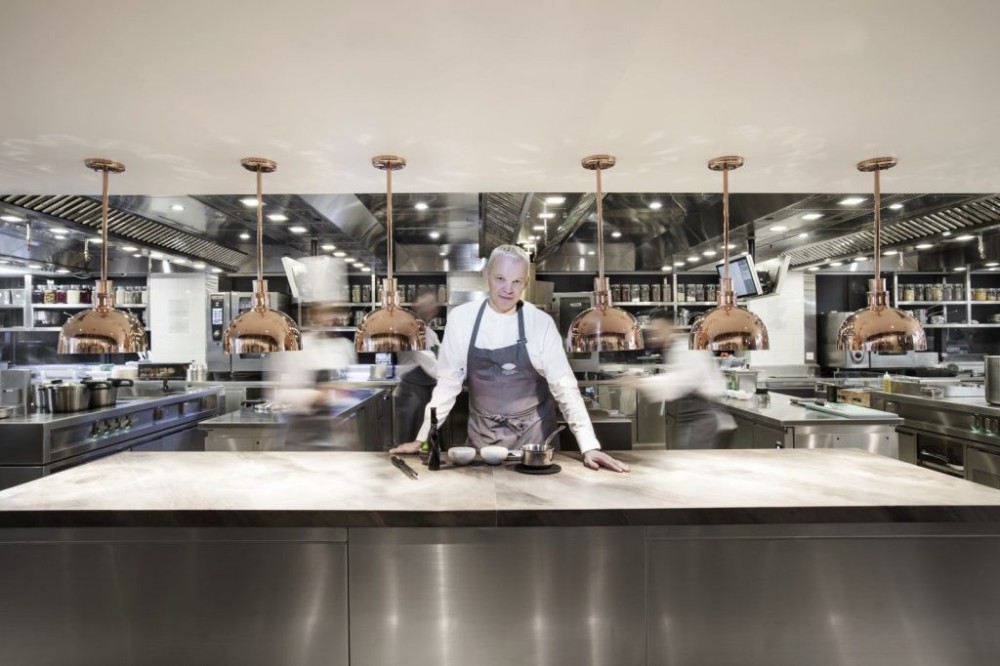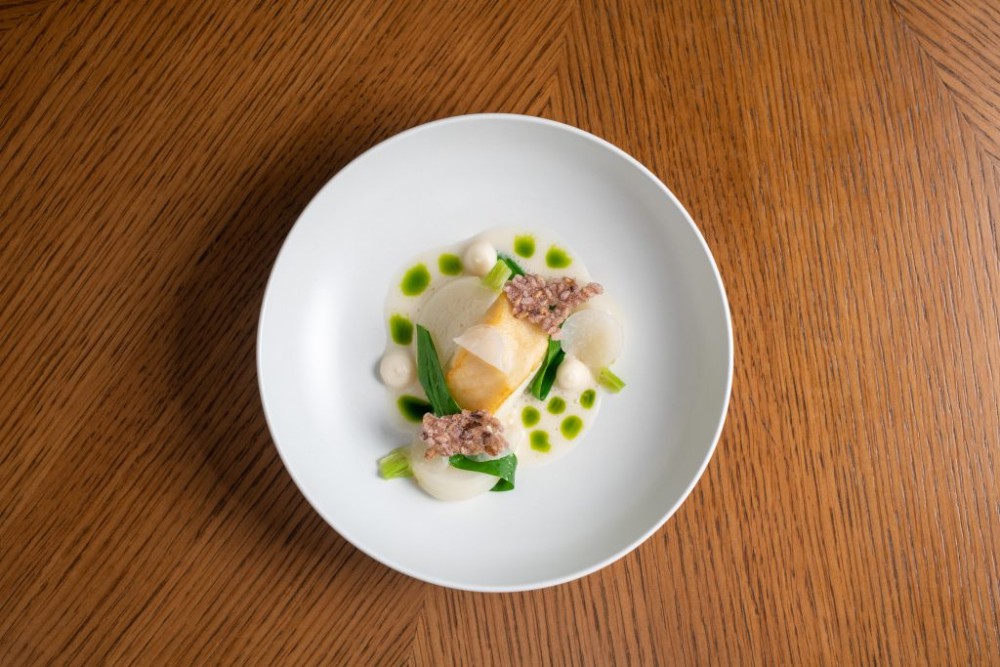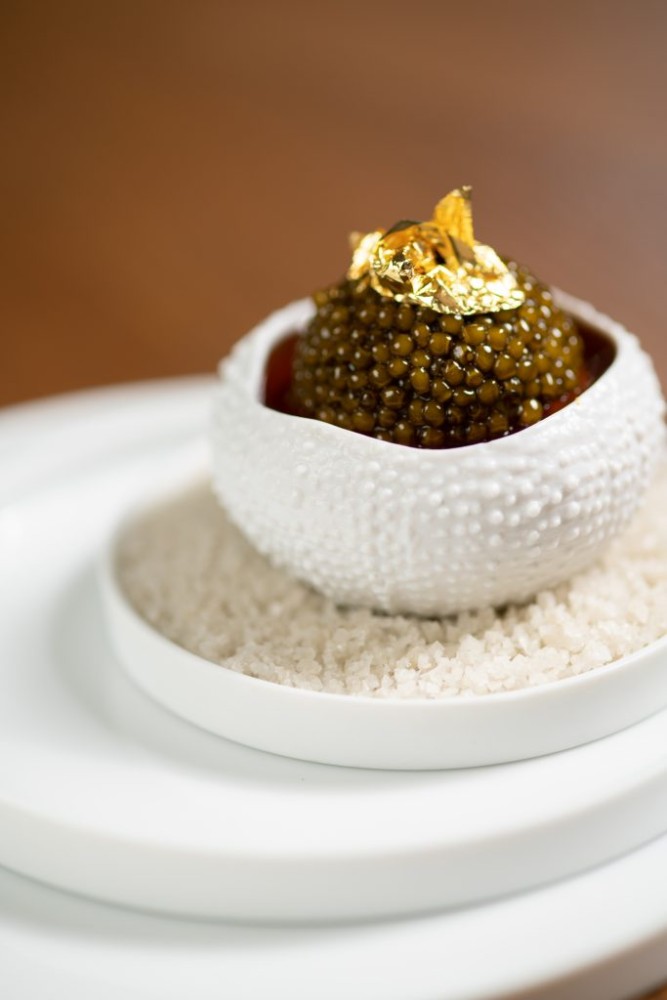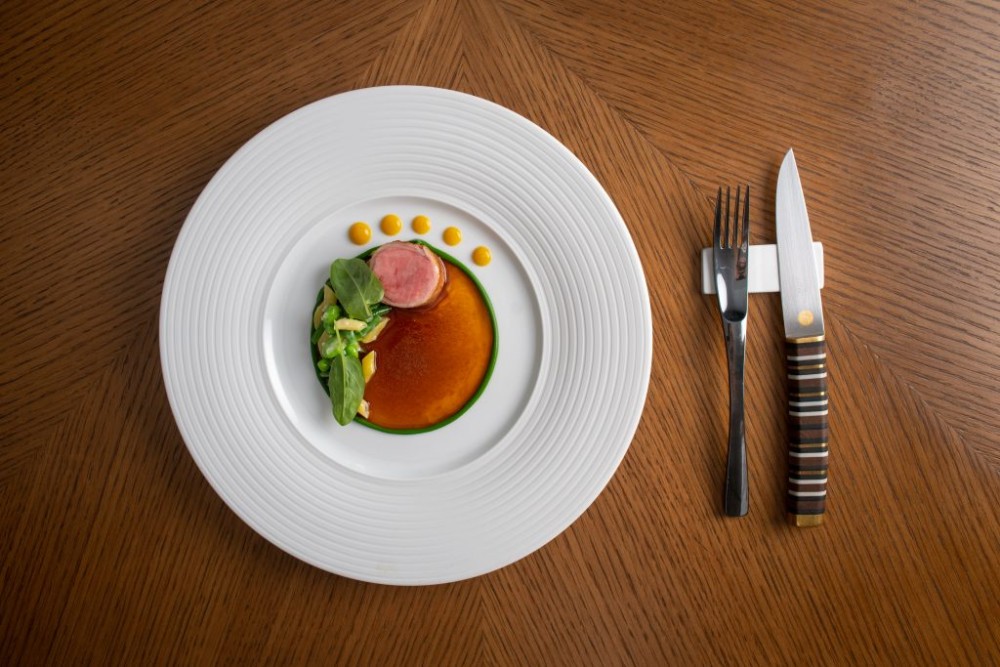Chef Richard Ekkebus on why sustainability is more important than ever today
Jan 20, 2021
Richard Ekkebus, the award-winning chef who’s been at the helm of Hong Kong fine-dining favourite Amber for over a decade, sits down with us to discuss why sustainability is so important to him

Even before the coronavirus pandemic, the world was in dire need of a reset and shift in perspective. Decades of overconsumption and plundering of resources had left many questioning the health of our species and the future of our planet. But it’s in times like these that heroes emerge. And, as the saying goes, not all heroes wear capes. Sometimes they come in the form of a tall, ambitious yet unassuming Dutchman on a mission to save the world, one beautifully crafted, sustainably sourced dish at a time.
Richard Ekkebus may be the culinary director at the Landmark Mandarin Oriental and its celebrated fine dining flagship Amber, with its two Michelin stars and consistently high ranking on Asia’s 50 Best Restaurants list, but he is the embodiment of grace with a quiet confidence and happy disposition that make it feel as if you’re chatting with a friend, discussing lifestyle choices and common interests.
In the case of the latter, the conversation often turns to Ekkebus’s groundbreaking transformation of Amber some two years ago when he did away with the usual hallmarks of fine dining. But French cuisine that is both dairy- and gluten-free? What of the bread, cheese and butter that the French are famed for? The chef has an answer for it all.

Ekkebus has ridden every wave of culinary trends since he started his career at 18. But there are three things he’s not willing to compromise on: good food, family and nature. Growing up in Vlissingen, a seaside town in the Netherlands, Ekkebus helped out at his grandparents’ restaurant and learned the benefits of subsistence cooking without compromising on quality or flavour.
After moving into the realm of Michelin-level fine dining, Ekkebus witnessed the inherent waste that comes with manipulating and transforming ingredients into virtually unrecognisable concoctions as well as the heaviness that many diners feel after indulging in a gourmet meal. With his transformation of Amber, he set out to change this by replacing dairy and gluten with plant-based and healthier alternatives, reducing the use of meat, salt and refined sugars, and increasing the amount of vegetarian and vegan options on the menu.
See also: The best vegan desserts in Hong Kong
“I want to feel energised after a meal,” Ekkebus explains. “I felt there must be a way of managing a fine-dining experience in a much more holistic way. Food should feed you and energise you, not make you want to go to sleep.”
He also began championing local, sustainable ingredients, sourcing everything used at Amber from within 500km of Hong Kong. “Growing locally is very difficult; it’s not encouraged,” Ekkebus admits. But instead of feeling limited by the challenges, the chef has embraced this as a journey of rediscovery.

“Giving ourselves limitations has actually resulted in us being more creative,” he says. “Vegetables come in all different sizes, shapes and colours – it’s a way more interesting kingdom than the animal kingdom. For us, working with smaller companies has opened a treasure chest that we didn’t have access to before.”
It’s also helped set an example in a notoriously polluting industry. “Hong Kong food and beverage is responsible for 25% of our greenhouse gas emissions,” he says. “It’s not because Hong Kong restaurants are any more wasteful, it’s just the sheer volume of restaurants in this city is exceptionally high.”
Besides being a source of nutrition and even social change, Ekkebus sees food as a great vehicle for conversation. He wants to engage consumers in a discussion around the future of food and the natural world alike. And he’s more than happy to share what he’s learned on his own journey to a predominantly plant-based diet.
“Giving ourselves limitations has actually made us more creative.”
Richard Ekkebus
“I wanted to shift the paradigm of the amount of meat used in a menu. I want to highlight that 50g of chickpeas hold the same amount of protein as a steak,” he says. “It’s something I had been working on for five years – it wasn’t something brand new. I was discreetly playing trial and error.”
As health and wellness has become paramount in the wake of the COVID-19 pandemic, Ekkebus acknowledges the wider impact the ever-expanding food industry has had on our health as a whole.
“The meat we humans eat has been the root cause of so many diseases. MRSA was related to industrial pork farming, H1N1 to industrial chicken farming and so on. So it’s confirmed that it’s important for us to change. If we want to stop these illnesses and the crises we’ve all experienced this year, then we have to change our eating habits.”

In terms of food preparation, Ekkebus is keen to encourage a return to fundamentals. Promoting the use of sustainable ingredients does not equate to a compromise in quality and presentation. “Preparing and serving food is arguably the most complex of the performing arts,” he says. “It’s a mastery of processes and presentations.”
The sublime Amber experience is testament to this, with the added bonus of contributing to a more sustainable future, and what we can only hope is a sign of things to come. “I think that if we set an example at the top,” says Ekkebus, whose most recent accolade was the Sustainable Restaurant Award 2020 presented by Asia’s 50 Best Restaurants, “it trickles through to the bottom and that’s powerful.”


























